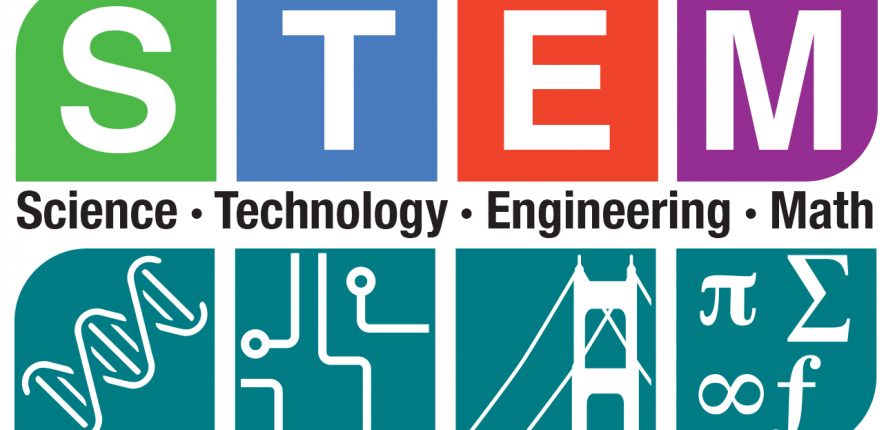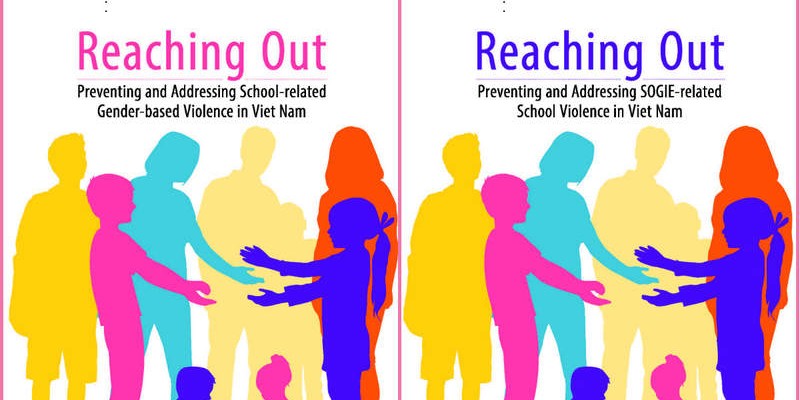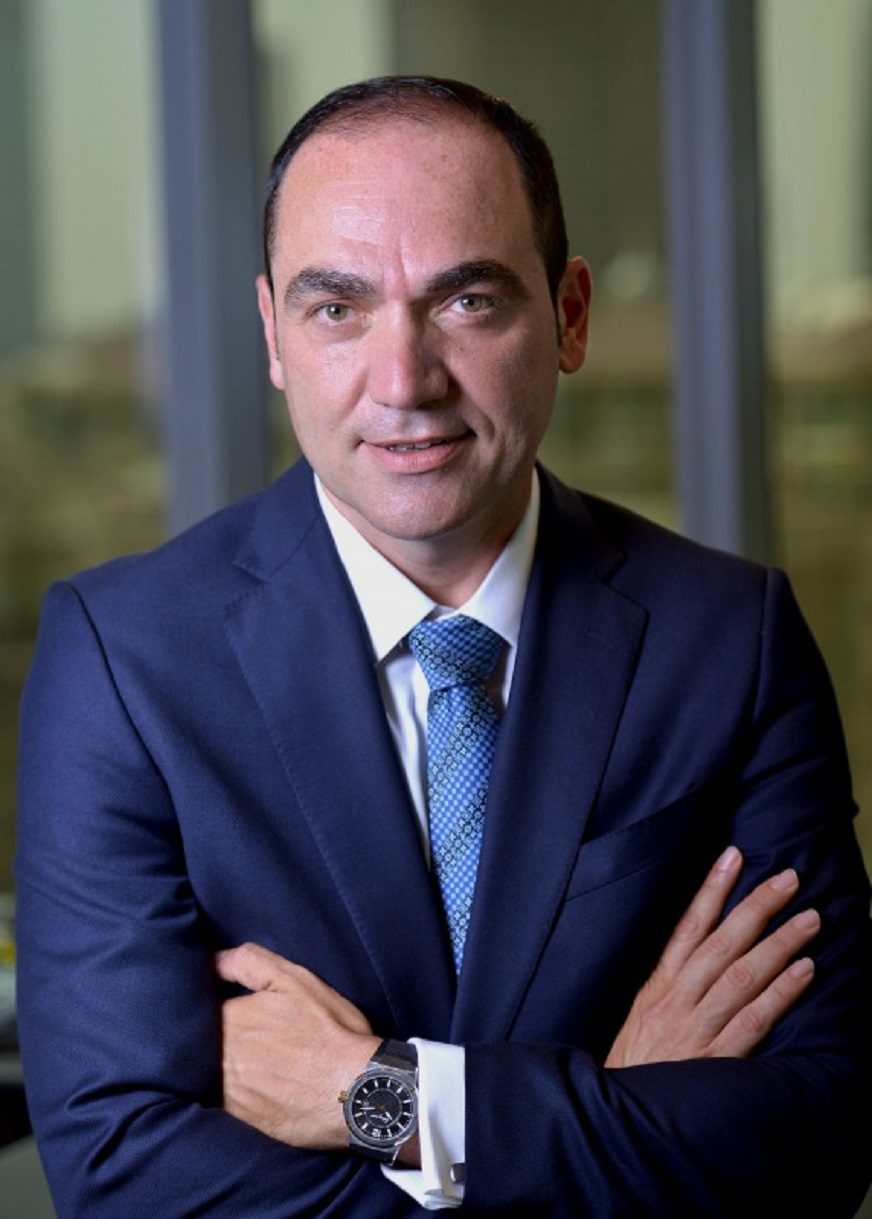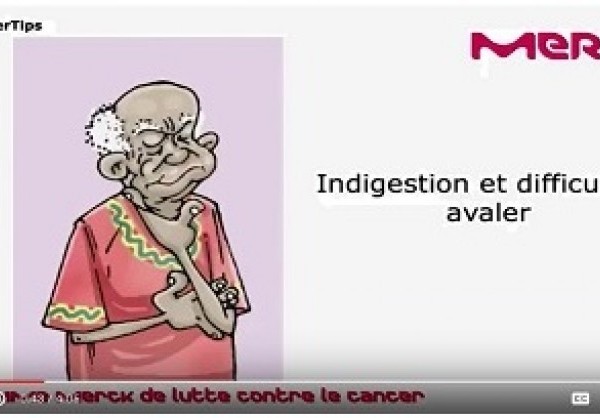Education
Merck, UNESCO Empower Women, Girls in STEM
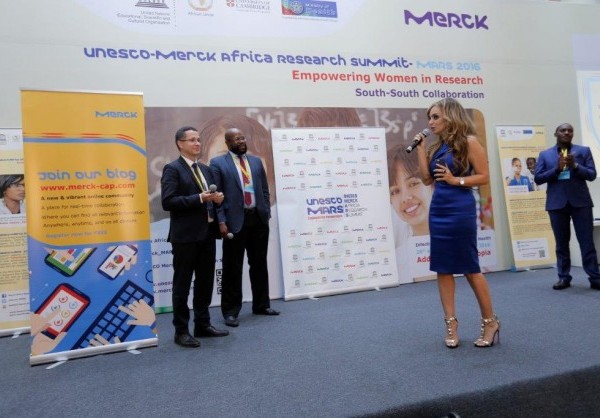

By Dipo Olowookere
Following the success of Merck Cancer Access Program to empower women in oncology field where they are underrepresented, comes another successful initiative for MERCK to empower African women in research to offer better health care to women.
After receiving his ‘African Alliances HE for SHE’ award for women empowerment, Prof Frank Stangenberg-Haverkamp has successfully achieved another commitment to empower women in research in an effort to bridging the gap in gender inequality in STEM Africa.
UNESCO and Merck celebrate outstanding African Women Researchers as a historical first. Kenya, Botswana, Burkina Faso, Gabon, Uganda, Ethiopia ranked in the top five places at the ‘Merck Africa Women Research Award on women health in Africa’.
Merck announced five winners from Kenya, Burkina Faso, Gabon, Uganda and Ethiopia under the category of ‘Best African Women Researchers Award’ and four winners from Botswana, Cameroon, Gambia and Zimbabwe for ‘Best Young African Researchers Award’ during the recently held 2nd UNESCO-Merck Africa Research Summit in Addis Ababa, Ethiopia where the first ‘Best African Women Researchers Award’ was being launched.
Prof. Frank Stangenberg-Haverkamp, Chairman of Executive Board and Family Board of E. Merck KG congratulated the winners: “Merck will work together with UNESCO to empower young researchers which raises the level of scientific research in Africa and encourages in particular young women researchers to pursue their dreams, work for improving access to health solutions and make a difference in the continent.
“Moreover, I am very pleased to offer my support to motivate female researchers & healthcare providers and recognize their excellent contribution to fields where they are underrepresented”.
“Merck will provide the winners with training and mentorship opportunity to advance their capacity and helps bring them to the international standard.
“The winner of MARS Research awards will be appointed as Merck Ambassadors of Empowering Women and Girls in STEM in their own countries through several future initiatives will be announced in 2017,” explained Rasha Kelej Chief Social Officer, Merck.
Recipients of the awards who are not only PhD students and young investigators based at African research institutes and universities were selected based on the abstracts they submitted. These impressive abstracts were related to Infectious Diseases with the aim to improve Women Health, the focus of UNESCO-MARS 2016.
In her introductory remarks, Dr Rasha Kelej, Chief Social Officer, Merck Healthcare highlighted: “This is the second UNESCO-MARS we are holding after the successful one held in Geneva, Switzerland in 2015. Merck is committed to empowering women in STEM (Science, Technology, Engineering and Mathematics) which will consequently contribute to improving the quality of research and science in Africa.”
“Merck’s support for research and healthcare especially in the field of oncology where women are currently under-represented will help bridge the gender gap in STEM in Africa. Merck have provided earlier this year Oncology fellowship program to African women doctors from Kenya, Uganda, Ghana and Tanzania. Not only that we have also supported women cancer survivors through access to information, awareness about prevention and early detection, health and economic empowerment through Merck more than a a patient initiative which focuses mainly on Cancer in women and its social misperception and stigma,” Rasha Kelej added.
“The first recipient, Patricia Rantshabeng from Botswana, was awarded for her study on cancer in women and its relation to infectious diseases. This is aligned with our objectives to empower women in both fields of research and oncology to improve women health” Rasha Kelej explained.
‘Best African Women Researchers Award’
The ‘Best African Women Researchers Awards’ with the aim of promoting women in STEM (Science, Technology, Engineering and Mathematics) went to five women researchers from across Africa, who were recognized for the outstanding quality of their research.
1st winner: Kenya
Beatrice Nyagol, Kenya Medical Research Institute for her study on:“Clinicians’ experiences and insights in conducting an intra-vaginal ring study among young women in Kisumu, Kenya, 2015 -Lessons learned” (see the video section: UNESCO-MARS 2016 ‘Best African Woman Researcher Award’ 1st place winner, Beatrice Nyagol, Kenya)
2nd winner: Burkina Faso
Rogomenoma Ouedraogo, Laboratory of Biology and Molecular Genetics University of Ouagadougou for her study on: “Molecular diagnosis of cytomegalovirus (CMV), the human herpes virus type 6 (HHV6) and Epstein-Barr virus (EBV) by real-time PCR in pregnant women infected or not infected by HIV at Ouagadougou, Burkina Faso” (see the video section: UNESCO-MARS 2016 ‘Best African Woman Researcher Award’ 2nd place winner, Alice Rogomenoma)
3rd winner: Gabon
Sandrine Liabagui ep Assangaboua Ecole Doctorale Regionale d’Afrique Centrale, Franceville for her study on: “Pro- and anti-inflammatory cytokines in children with malaria in Franceville, Gabon”
4th winner: Uganda
Maria Nabaggala, from the Infectious Diseases Institute for her study on: “Understanding outcomes of HIV positive patient tracking following a missed appointment in rural Uganda” (see the video section: UNESCO-MARS 2016 ‘Best African Woman Researcher Award’ 4th place winner, Maria Nabaggala, Uganda)
5th winner: Ethiopia
Martha Zewdie, Armauer Hansen Research Institute for her study on: “Ex-vivo characterization of regulatory T-cells in pulmonary tuberculosis patients, latently infected persons, and healthy endemic controls” (see the video section: UNESCO-MARS 2016 ‘Best African Women Researcher Award’ 5th place winner, Martha Zewdie, Ethiopia)
‘Best Young African Researchers Award’
The three categories of the ‘Best Young Researchers Award’ were given to two female and two male researchers Botswana, Cameroon, Gambia and Zimbabwe.
1st winner: Botswana
Patricia Rantshabeng, University of Botswana for her study on: “Prevalence of oncogenic Human Papillomavirus genotypes in women with vulvar and cervical squamous cell carcinoma in Botswana (see the video section: UNESCO-MARS 2016 ‘Best Young African Researcher Award’ 1st place winner, Patricia Rantshabeng, Botswana)
2nd winner: Cameroon
Constantine Asahngwa, Cameroon Centre for Evidence Based Health Care for his study on: “The experiences of women living with trachoma in Africa: A qualitative systematic review” (see the video section: UNESCO-MARS 2016 ‘Best Young African Researcher Award’ 2nd place, Constantine Asahngwa, Cameroon)
3rd winner: Zimbabwe
Tinashe Nyazika, University of Zimbabwe for his study on: “Cryptococcus neoformans population diversity is not associated with clinical outcomes of HIV-associated cryptococcal meningitis patients in Zimbabwe” (see the video section: UNESCO-MARS 2016 ‘Best Young Researcher Award’ 3rd place winner, Tinashe Nyazika, Zimbabwe)
3rd winner: Gambia
Lamin Cham, from National Aids Control Program for his study on: “Qualitative detection of proviral-DNA of HIV-1 in neonates to determine the efficacy of antiretroviral therapy in the prevention of vertical transmission of HIV-1 in the Gambia” (see the video section: UNESCO-MARS 2016 ‘Best Young Researcher Award’ 3rd place winner, Lamin Cham, Gambia)
About 2016 MARS award winners:
‘Best African Women Researchers Award’
1st Place: Beatrice Nyagol, Kenya Medical Research Institute, Kenya
2nd Place: Rogomenoma Ouedraogo, Laboratory of Biology and Molecular Genetics University, Burkina Faso
3rd Place: Sandrine Liabagui ep Assangaboua, Ecole Doctorale Regionale d’Afrique Centrale, Franceville, Gabon
4th Place: Maria Nabaggala, Infectious Diseases Institute, Uganda
5th Place: Martha Zewdie, Armauer Hansen Research Institute, Ethiopia
‘Best Young African Researchers Award’
1st Place: Patricia Rantshabeng, University of Botswana, Botswana
2nd Place: Constantine Asahngwa, Cameroon Centre for Evidence Based Health Care
3rd Place: Tinashe Nyazika, University of Zimbabwe, Zimbabwe
3rd place : Lamin Cham, National Aids Control Program, Gambia
Meet the First candidates for Merck Oncology Fellowship Program to empower women and youth in the field of oncology
The first two candidates to attend the Merck Africa Oncology Fellowship Program at Tata Memorial Center in India have been selected from Tanzania and Ghana.
Nihad Salifu from Ghana College of Physicians and Surgeons will attend the Fellowship to train in Paediatric Oncology and Christina Malichewe from Muhimbili University of Health and Allied Sciences, Tanzania is interested in learning more about the treatment of gastro intestinal malignancies.
Dr. Christina V. Malichewe, Muhimbili University of Health and Allied Sciences (MUHAS) Dares Salaam, Tanzania
“Cancer is a growing concern in Tanzania. Limited facilities and few healthcare providers against the high rising number of patients diagnosed at advanced stages pose a great challenge to a developing country like Tanzania. Unfortunately there are only two medical oncologists in a country of approximately 50 million people. One studied in Italy and another in China. We need more specialized oncologists in this field. Thank you Merck for starting this program!! However, it is only through unique opportunities such as the Merck Africa Fellowship Program we can make needed change in our societies so as to improve patient access to cancer care,” Christina Malichewe said.
“I am thankful and proud to be among the young doctors from Tanzania to attend the Merck Africa Medical Oncology Program which I believe after completion will further help in imparting knowledge to others and increasing the access to cancer care in the larger Tanzanian population,” Christina added.
Christina is interested in learning more on the treatment of gastro intestinal malignancies. “I know a lot is changing on the management and in our country there is little interest on this area in terms of screening, management and research among the oncologists compared to cervical, breast and Kaposis sarcoma cancers”.
Dr. Nihad Salifu, Senior Residency trainee in General Pediatrics at Ghana College of Physicians and Surgeons
“Ghana has a population of about 26 million with a cancer rate of 109 per 100,000 people and yet there is no single trained medical oncologist in the whole country. The duty of medical oncologist is handled by other specialties such as radiation oncologist, general surgeons, genitourinary surgeons, and hematologists among others. This makes the care of patients very difficult because these doctors are not formally trained in medical oncology,” says Nihad Salifu, a Senior Resident trainee in general pediatrics at the Ghana College of Physicians and Surgeons.
“In addition, there are only three paediatric oncologists in the whole country and our cancer cure rate is very low in children- it is about 20% when cure rates are approaching 80% in many developed parts of the world,” adds Salifu.
Salifu, who is one of the first candidates of the Merck Africa Oncology Fellowship Program says: “This huge human resource deficit in childhood cancer care is the main motivating factor for my applying to be considered for this training. I will benefit from this great opportunity being given to our country by Merck. The Merck Fellowship Program will definitely add to the few paediatric oncologists in Ghana; ease the workload and improve quality of patient care; add to the number of voices advocating for these patients and to the number of trainers of health workers delivering services including awareness creation; and also strengthen the team effort in the area of research and improving the paediatric cancer registry.”
Dr. Angela McLigeyo
Dr. Angela McLigeyo, a medical doctor in Kenya has worked as a medical officer and consultant physician for the past 12 years and shares about the challenges oncology patients face in the country and how the Fellowship Program will impact cancer care.
“Five years ago, after a personal experience with cancer, I realized that oncology patients in Kenya have a tough time accessing healthcare because there are no programs to support the expensive treatment and there are practically no public health programs for improving health systems for cancer management. The outcomes therefore for patients with cancer in my country are very dismal,” McLigeyo says.
McLigeyo explains: “My decision to study oncology was made then. One of the goals in this decision has been to improve the quality of oncology care in Kenya. This is especially in the setting of the growing cancer burden in Kenya and the high mortality rates that accompany it. In addition, majority of cancer patients in Kenya have to travel out of the country to seek treatment due to high local treatment costs, shortage of specialists and weak health systems.”
“The decision to study oncology meant taking initiative for self-learning as well as collaborating with like–minded oncologists. To this end, I joined the hemato and medical oncology unit at the Kenyatta National Hospital as a volunteer from early 2014, and I have been working with the team there since then,” adds McLigeyo.
McLigeyo emphasizes: ‘The Merck Africa Oncology Fellowship Program’ in partnership with University of Nairobi is timely for the African continent. It aptly suits our need for increasing the number of trained oncologists in the continent, both through developing knowledge and skills as well as increasing research and leadership skills. I look forward to the two year learning period after which I hope to train others under the same program in addition to offering quality oncology services in my country, Kenya.”
Education
Hallos Launches Learning247 Summit

By Adedapo Adesanya
Live-learning and creator-economy platform, Hallos, as part of its expansion drive, has unveiled plans to equip millions of youths and women with digital skills and monetisation opportunities through the Learning247 Hallos Summit, aimed at integrating Nigeria’s South-East into the rapidly expanding global creator economy.
At a sensitisation and stakeholder engagement forum in Enugu, the organisation also called for stronger strategic partnerships with government agencies, educational institutions, development organisations, media houses and private-sector stakeholders to advance the creator economy as a credible engine for mass employment, youth prosperity and inclusive economic growth.
The chief executive of Hallos, Mr Alexander Oseji Uzoma, renewed the call for increased investment in internet penetration, reliable power supply, digital infrastructure, creative studios and youth-focused innovation hubs across Nigeria, especially the South-East.
Describing the creator economy as one of the most accessible and scalable employment frontiers globally, he noted that with basic tools such as a smartphone, internet access and creative skills, young people can build audiences, monetise knowledge and generate sustainable income without heavy capital investment or long career pathways.
According to Mr Uzoma, the creator economy offers low-barrier entry into diverse professions, including content creation, social media influencing, live tutoring and digital coaching, video production, podcasting, graphic design, music and performance arts, digital marketing, merchandise design, e-commerce and community management. These activities support a broader value chain spanning production, distribution, technology and management.
The Hallos co-founder also explained that global projections place the creator economy in the hundreds of billions of dollars, with millions of creators worldwide earning sustainable incomes, stressing that Hallos is focused on localising these opportunities to ensure African youths can participate meaningfully and compete globally.
He further noted that Hallos operates a live-learning and creator-focused platform that integrates education, gamified quizzes, merchandising and voluntary fan donations into a single ecosystem. Through the platform, creators can host live learning sessions and masterclasses, earn from quizzes and challenges, sell branded merchandise, receive voluntary donations, build communities around their expertise and organise monetisable podcasts.
Mr Uzoma said the creator economy, driven by social media platforms, streaming services, digital commerce and content monetisation tools, has evolved into a major global industry capable of generating wealth, creating jobs and expanding export earnings.
He stressed that social media should no longer be viewed as a recreational space but as a viable business environment for wealth creation.
“The focus should not just be on content creation alone but on building businesses around content. It is about value creation and structured digital entrepreneurship,” he said.
He disclosed that Hallos intends to reach about 10 million youths nationwide, with over 5,000 already engaged across its programmes, while placing strong emphasis on bridging the gender gap by empowering women and girls through targeted digital training, mentorship and access to monetisation platforms.
As the digital economy continues to expand, Hallos said the creator economy stands out as a practical and scalable solution to youth unemployment, offering low entry barriers and global earning potential.
The company reaffirmed its commitment to bridging the gap between talent and income, enabling young Africans to earn well above minimum wage through creativity, knowledge and structured participation in the global digital economy.
Education
Bayero University PG Students to Enjoy Dangote’s N1.5bn Scholarship

By Modupe Gbadeyanka
Post-graduate students of Bayero University Kano (BUK) will benefit from a scholarship worth about N1.5 billion from the Aliko Dangote Foundation (ADF).
The businessman put down the funds to support eligible MBA, entrepreneurship, and management postgraduate students of the institution under an initiative known as MHF Dangote Graduate Business Scholarship.
At a ceremony on Tuesday, the foundation and the school signed a Memorandum of Understanding (MoU) at the auditorium of the Dangote Business School, Kano.
The deal is to provide N300 million annually over five years as scholarship awards to the beneficiaries, who will receive N150,000 each per session, beginning with the 2024/25 academic session. This is equivalent to 50 per cent of the current N300,000 fee paid by the post-graduate students. There are 1,225 students in the Business School (696 fresh and 529 returning students).
One of the beneficiaries, Mr Khalid Bababubu, who is into manufacturing and specialises in MBA, Finance and Investment, thanked the organisation for the gesture.
“We are happy to be beneficiaries of this initiative. Education is the bedrock of national development, and we will not take this scholarship for granted,” he said.
A representative of ADF, Ms Mariya Aliko Dangote, said, “Our vision at the Foundation is to build human capital that translates into economic opportunity.
“Strengthening business and entrepreneurship education is critical to turning knowledge into enterprise, innovation, and jobs. This scholarship deepens our commitment to Dangote Business School by investing directly in the next generation of business leaders and change-makers.”
On his part, the Vice Chancellor of Bayero University Kano, Prof. Haruna Musa, said, “This support comes at a critical time for many families. Beyond financial relief, it strengthens the Business School’s role as a centre for developing entrepreneurial and management talent, particularly for women who are increasingly taking leadership roles in enterprise.”
It was explained that newly admitted students will receive automatic tuition reductions during registration, and returning students who have already paid in full will receive rebates. The N300 million allocation is structured to cover all eligible postgraduate students based on current enrolment capacity.
Any unutilised balance in the first year will be retained within the Dangote Business School development envelope to strengthen learning infrastructure and digital academic capacity, ensuring continued enhancement of the academic environment.
The MHF Dangote Graduate Business Scholarship is distinct from ADF’s recently announced nationwide STEM education interventions.
Education
Entries for InterswitchSPAK 8.0 Begin, Over N40m up for Grabs

By Aduragbemi Omiyale
Senior secondary school students across Nigeria have been invited to apply and demonstrate their academic excellence on a national stage in the eighth edition of the prestigious national science competition known as InterswitchSPAK.
The contest is organised by Interswitch, Africa’s leading technology company focused on creating solutions that enable individuals and communities prosper.
Registration for InterswitchSPAK 8.0 via www.interswitchspak.com has opened and will close on Friday, May 24, 2026. For the first time, in addition to group registrations through schools, parents can also register their individual children for the competition.
This year’s edition features a scholarship pool exceeding N40 million, with Interswitch expanding the prize structure to ensure broader impact.
The overall winner will receive a N15 million tertiary scholarship, including monthly stipends. The first runner-up will be awarded a N10 million scholarship, including monthly stipends; while the second runner-up will receive a N5 million scholarship, also including monthly stipends. All scholarships are payable over 5 years. Also, the top 9 finalists will all receive brand new laptops and other exciting prizes.
In addition to the top prizes, Season 8 introduces enhanced rewards for student finalists ranked 4th to 9th, as well as increased recognition for teachers supporting qualifying students from 1st to 9th place. This expanded structure reinforces Interswitch’s commitment to rewarding academic excellence and recognising the critical role educators play in shaping student success.
“At Interswitch, we strongly believe that Nigeria’s future will be shaped by how well we nurture today’s young minds. InterswitchSPAK goes beyond competition; it is a long-term commitment to empowering students and supporting teachers who are laying the foundation for innovation, problem-solving, and national development.
“As we launch Season 8, we remain focused on creating opportunity, rewarding merit, and inspiring excellence across Nigeria,” the Executive Vice President for Group Marketing and Communications at Interswitch, Ms Cherry Eromosele, said.
Designed to empower young minds in the Science, Technology, Engineering, and Mathematics (STEM) areas, InterswitchSPAK identifies, nurtures, and rewards students while equipping them with the skills and knowledge required to excel in STEM fields and drive innovation.
Over the past seven seasons, InterswitchSPAK has positively impacted thousands of students across the country, offering full university scholarships, mentorship opportunities, and national recognition for outstanding academic performance.
Beyond these rewards, the programme has consistently reinforced the importance of STEM education as a critical driver of innovation, problem-solving, and sustainable national development.
Through a transparent, technology-enabled selection process, InterswitchSPAK has also promoted educational equity by providing students from diverse socio-economic backgrounds with equal access to opportunity, ensuring that performance and merit remain central to success.
-

 Feature/OPED6 years ago
Feature/OPED6 years agoDavos was Different this year
-
Travel/Tourism10 years ago
Lagos Seals Western Lodge Hotel In Ikorodu
-

 Showbiz3 years ago
Showbiz3 years agoEstranged Lover Releases Videos of Empress Njamah Bathing
-

 Banking8 years ago
Banking8 years agoSort Codes of GTBank Branches in Nigeria
-

 Economy3 years ago
Economy3 years agoSubsidy Removal: CNG at N130 Per Litre Cheaper Than Petrol—IPMAN
-

 Banking3 years ago
Banking3 years agoSort Codes of UBA Branches in Nigeria
-

 Banking3 years ago
Banking3 years agoFirst Bank Announces Planned Downtime
-

 Sports3 years ago
Sports3 years agoHighest Paid Nigerian Footballer – How Much Do Nigerian Footballers Earn


